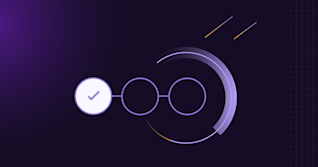While manual code review processes may suffice for a small team, as DevSecOps teams scale, the processes create significant bottlenecks that impede software development velocity and quality. Often slow, inconsistent, and frequently failing to catch critical vulnerabilities, the manual approach leads to technical debt and increased security risks.
To mitigate risks and drive innovation, organizations must prioritize automated code quality and compliance systems. The financial implications of poor code management are substantial, with technical debt consuming up to 40% of IT budgets (McKinsey Digital: Tech Debt Report) and software vulnerabilities costing an average of $4.88 million per security breach (IBM Cost of a Data Breach Report).
Modern software development requires a strategic approach to code management and compliance that goes beyond traditional review processes. With more robust review systems and compliance controls, organizations can innovate and secure software faster than their competitors.
The power of code review and approval processes
According to the GitLab 2024 Global DevSecOps Report, C-level executives rank code quality as one of the top benefits of DevSecOps. With executives recognizing code quality as a strategic priority, systematic review processes have emerged as a cornerstone of modern development practices.
Code review processes benefit developers through knowledge sharing, the discovery of bugs earlier in the process, and improved security. However, developers say the top changes that could be made to improve job satisfaction are increasing automation and collaboration, according to our survey.
As code quality and code review processes are embedded into the software development lifecycle, focusing on systems that remove manual code review and enhance collaboration across teams will help keep developer workflows running smoothly.
Code review processes increase collaboration and development speed
The improvement in organizational efficiency can be seen in this example with Airbus Intelligence, a leader in the geospatial industry. The development teams at Airbus struggled with inefficient processes and needed tools that could help their team collaborate efficiently across the globe. After adopting GitLab Premium, Airbus quickly noticed the improvement in code quality.
GitLab CI’s built-in security testing meant developers could identify bugs and vulnerabilities before they reached production. Instead of spending a full day setting up for production and doing manual tests, those simple tasks are now automated.
Airbus’ release time dramatically decreased from 24 hours to just 10 minutes.
“What used to happen is we would touch one part of the code and it would break another part. Now, each time a developer pushes code, we can immediately identify problems,” said Logan Weber, Software Automation Engineer at Airbus Defense and Space, Intelligence.
Features that enable higher code quality
Powerful GitLab Premium features like Multiple Approvers for Merge Requests, Code Quality checks integration with third-party code quality solutions, and Protected Branches, enable companies to innovate faster than their competitors.
By reducing review cycle times while strengthening code integrity and compliance, DevSecOps teams address both the technical debt and security vulnerability challenges that plague traditional approaches. These security benefits help teams like AirBus Intelligence develop faster, more secure solutions.
Why enhanced compliance controls matter
The implementation of effective code compliance strategies is constantly evolving due to changing regulations, and keeping up with these regulations is a challenge for most companies.
By developing code compliance strategies and automated control mechanisms, companies ensure that quality and compliance policies are met.
For Airbus Intelligence, security and vulnerability scans built into integration testing enabled teams to catch security and compliance issues earlier in the process.
Continuous integration gives teams visibility into more projects and allows all team members to manage deployments. Expanded access controls improve cross-team collaboration and accountability.
Features that increase accountability
GitLab Premium's advanced compliance controls create an unbroken chain of accountability throughout the development process, enabling organizations to systematically track and validate every code change.
Users have greater auditability of any change and can track commits. This is in addition to strict access controls that provide specific people with the ability to push and merge changes. With audit logs, users can track and review changes and activities within the repository.
Ship software faster with GitLab Premium
“It’s simple. All teams operate around this one tool. Instantly, that made communication easier. We wouldn’t be where we are today if we didn’t have GitLab in our stack,” according to Airbus' Weber.
GitLab Premium represents more than just a tool — it's a comprehensive approach to software engineering that empowers development teams to deliver high-quality, secure, and efficient software solutions.
Discover why customers are upgrading to GitLab Premium.




